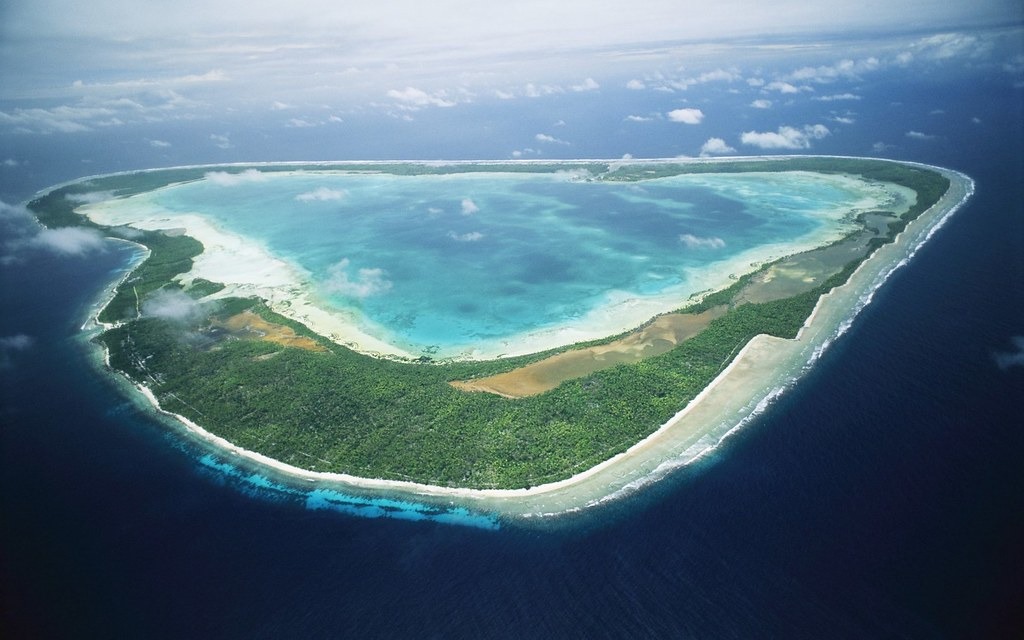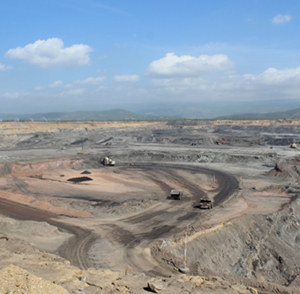
Atossa Araxia Abrahamian is a US-based journalist and author of “The Cosmopolites: The Coming of the Global Citizen”. She is working on a second book on extraterritorial jurisdictions for Riverhead Books.
The first nations to become uninhabitable as seas rise will be small island states like Kiribati in the South Pacific, home to some 115,000 people. Under current legal regimes, what will happen to the citizenship status of inhabitants once they are forced to migrate?
We know that rising sea levels will force many, many people to move. The vast majority of them will be internally displaced, but some will have to leave their homes for other countries because the environments they live in will be unsuitable for living. Still, there’s no reason why these individuals would necessarily become stateless in this process – at least in the foreseeable future – since countries like Kiribati or Vanuatu are unlikely to disappear entirely. If the past behaviour of nations tells us anything, we can safely assume they will cling to their statehood with all their might.
International law seems, for now, to be on their side. There’s no minimum landmass for a country to be considered a state, so even if coastlines erode and landmass is diminished, I don’t see the UN stepping in and un-recognising a country just because it got smaller or lost a significant portion of its population. If it did that, it would have to evict the Holy See, which barely covers half a square kilometre. So, for a while at least this question is academic.
There is all the same a threshold at which what’s known as a juridical “island” becomes a juridical “rock” so it’s not theoretically impossible for an island nation to get downgraded. That will happen when it can no longer sustain life – environmentally (i.e., no drinking water) or economically (no way for people to make a living.) I also really can’t imagine states forfeiting their sovereignty for lack of land or population. Countries have been governed from abroad during wartime, for example. What is more likely is that nations will build artificial islands to replace the submerged ones – the Maldives is doing this right now, and states like Singapore and China have also “reclaimed” parts of the sea to extend their own territorial reach, even without this existential threat.
It’s tempting to jump to wild conclusions and solutions to the problem of submerged islands, but as novel as these situations are, we’re dealing with much more prosaic and intractable problems: how to make sure people in dangerous situations find a safe landing place where they can live, work, get an education and have a normal life.
The question of future citizenship is often sidelined in discussions around the effects of the climate crisis, which tends to focus on direct material impacts – flooding, drought, food shortages, and so on. But what will the lived experiences of those fleeing sinking states to other countries be?
I can’t speak to the emotional aspect of losing a homeland to this kind of tragedy, particularly for people with traditions that are inextricably linked to that land. But climate refugees will, on top of this heartbreak, be faced with all of the obstacles that other kinds of migrants deal with: namely, how will they get the right work and residence papers? This will depend on whether individual host nations grant them rights though ordinary immigration channels, or through exceptional visas, like the ones the US grants to citizens of places that have experienced disasters.
There are other types of precarity: How will they adapt and integrate into a new society? How will they maintain a sense of their identity – cultural, national or otherwise – without a place to go “back” to? It’s not impossible to hang onto heritage even without places or even passports: the Chagossians, who were forcibly displaced from the island of Diego Garcia by the British so that the US could build a military base some 50 years ago, have a thriving community and even a football team in the UK. And of course, Russian emigrés after the Revolution did not recognise their new government, were not recognised by the Soviet government, yet maintained an unbelievably rich literary and cultural tradition from abroad.
What I’m trying to say is that human cultures are much more than a bit of land, and if given the resources to live comfortable and rich lives in a new place, I don’t see them giving up their heritage. The key is to make it possible for people to move safely to places that welcome them. That’s a gigantic challenge, even in the absence of climate change.
You’ve written widely on the uneven global playing field for citizenship eligibility, and especially on the financial elites of the world who can buy passports with ease. Citizenship has long been widely understood as primarily a matter of blood or soil. But how central a role will wealth play as the world heats up?
Money will continue to help rich people migrate more easily and keep less rich people in place. Rich people will also look to buy passports, property and land in areas they deem safe or sheltered from the worst effects of global warming. But my prediction here is that there will be more options for moderately well-off people to buy residence or citizenship as populations in Europe age and more states seek to attract educated, working-age populations. This won’t do a thing to help the poorest and least privileged people in the world. But money will certainly not be eliminated from the migration equation.
Some have advocated for a decoupling of citizenship from territory as one answer to an increase in global statelessness. But what would that look like in reality?
This has been done before! In 1922, the head of the UN refugee agency, a Norwegian statesman named Fritzdjof Nansen, came up with what was known as the “Nansen passport” for people displaced by war and revolution in Russia, Armenia, and beyond. The document was a stateless person’s passport, and while it wasn’t always as “good” (in terms of access and acceptance) as an ordinary passport, it allowed close to half a million people to prove their identity, cross borders, and find new homes. Now, you can probably imagine how politically impossible this kind of endeavour would be today, but it’s worth remembering that in times of crisis, wild ideas become possible.
Since Nansen’s day, the international community has passed lots of treaties and conventions to deal with refugees and statelessness, but none of them are quite up to the task of dealing with the climate crisis. The 1951 Refugee convention’s standard rationale for a person to be considered a refugee is “fear of persecution” and it doesn’t really apply to, say, an eroding coastline and no means of growing food. Still, there have been plenty of discussions around whether it can be adapted. One argument is that the convention could apply because the victims of climate change become marginalised and at risk of persecution because of their vulnerable position. Climate defenders may also have a claim to fearing persecution when they come up against, say, oil companies or governments defending corporate interests.
This convention may prove too outdated; we may have to come up with new ones. But whatever happens, I do think we’re going to have to think in less territorial terms. There’s always been a premium on land throughout human history, and the paradox of climate change is that preserving it has at once never been more important to our physical survival, nor more important to think beyond its constraints politically and philosophically.
Is there any evidence that the world is moving in such a direction – that the state model is declining? If anything, many nations over the past decade appear to have doubled their efforts to ensure absolute sovereignty and some degree of homogeneity of their populations, so the prospect of new arrivals being given their full legal rights seems to be diminishing.
I don’t believe the state as an institution is in decline, but states are definitely looking to augment or supplement their territorial footprint with digital and extraterritorial holdings as a way of maintaining and defending their sovereignty. The Bahamas made a splash recently because they opened an embassy in the Metaverse. Saudi Arabia’s new NEOM project is promising “mixed-reality” experience, both in the physical and digital realms, where individuals can access services from far away as well as on the ground. We’re seeing crypto-currencies decoupled (in theory) from countries, and even residence decoupled from places, in the case of Estonia, which offers e-residency to entrepreneurs looking to use the country’s business and tech infrastructure.
And look at us – we’ve been stuck on Zoom meetings in our pyjamas for two years now!
Where all this is leading is obviously up in the air, but taken together, with the backdrop of climate disaster, I’m inclined to believe that the deterritorialisation of parts of our lives and political systems will continue.
This is the full version of our Q&A from the New Humanist spring 2022 edition. Subscribe here.

